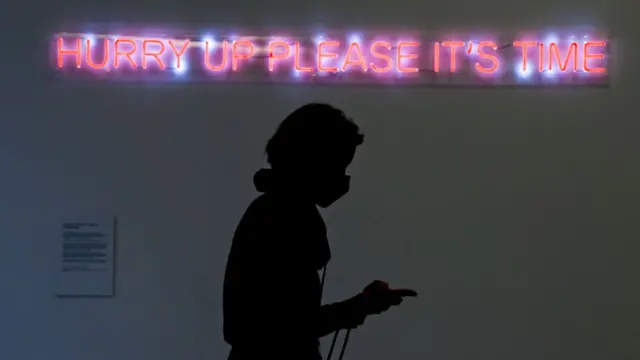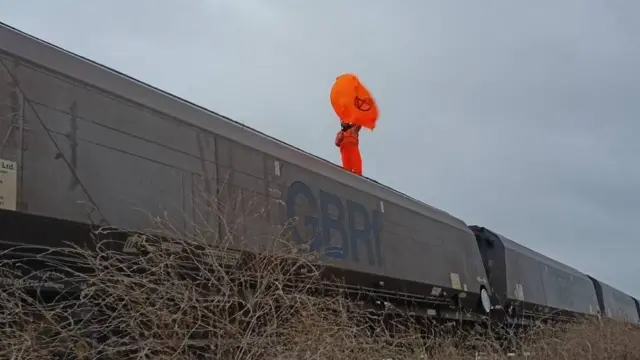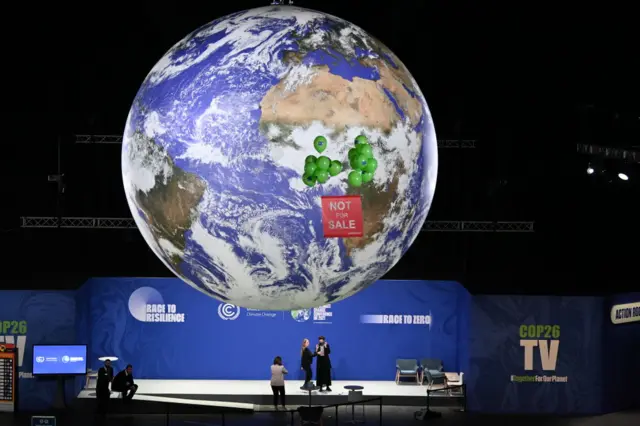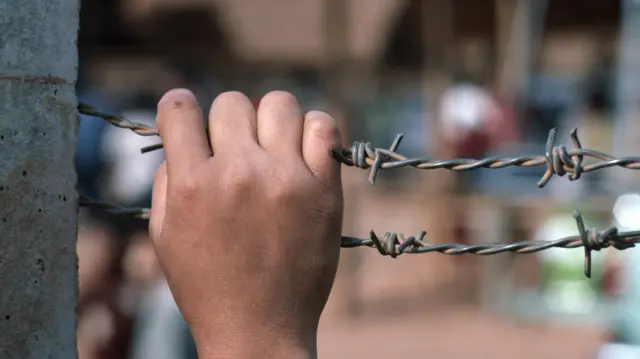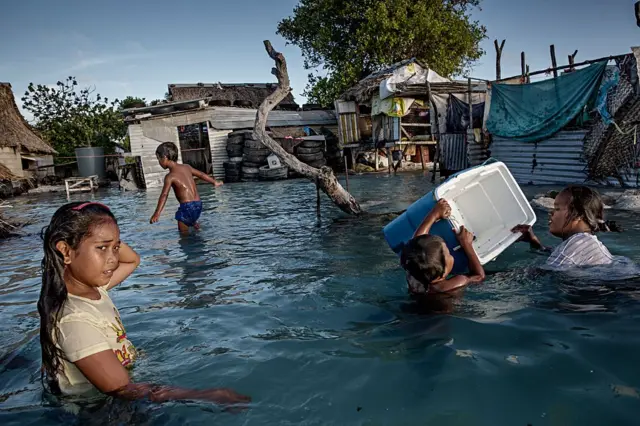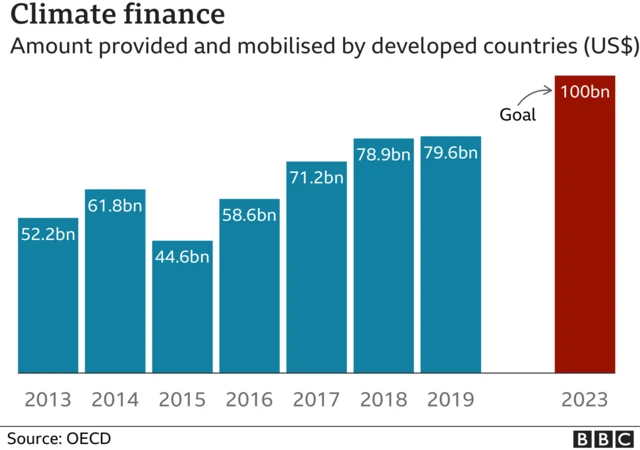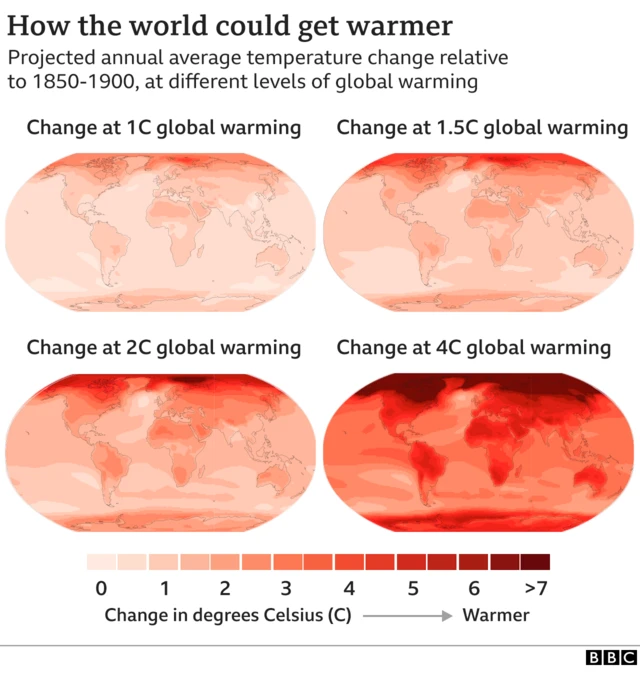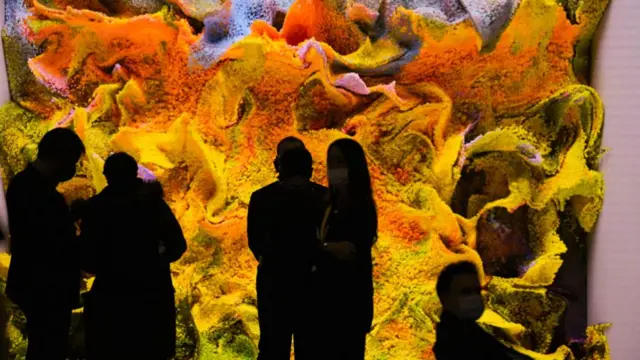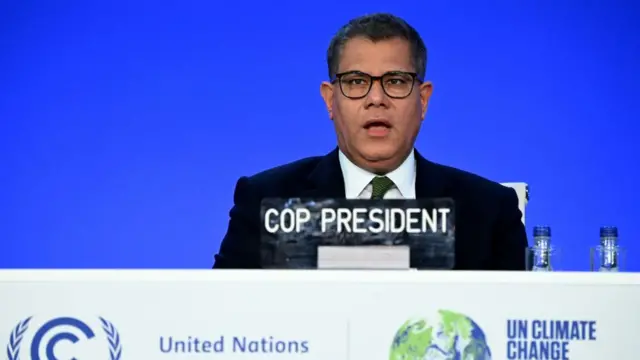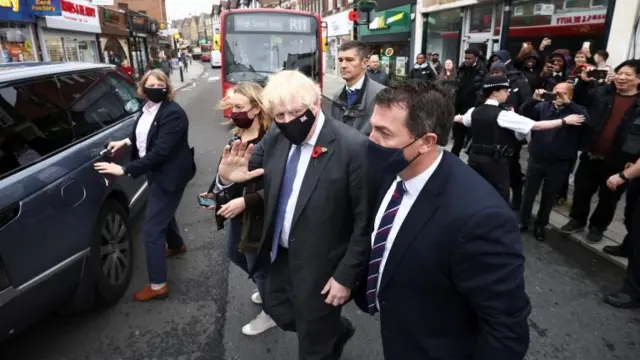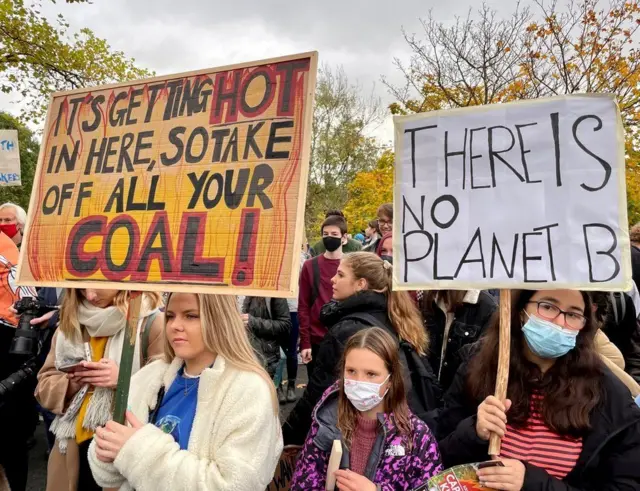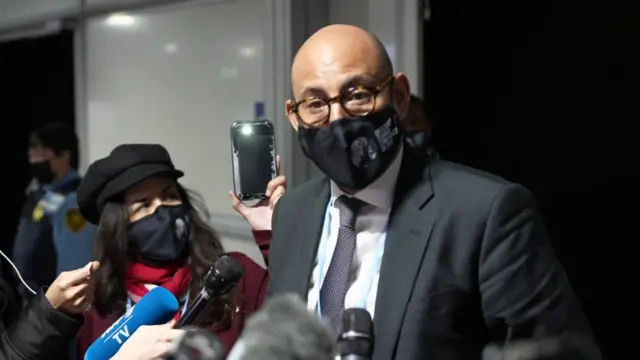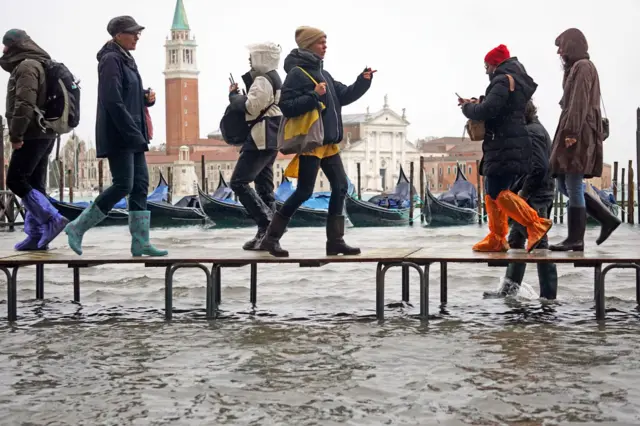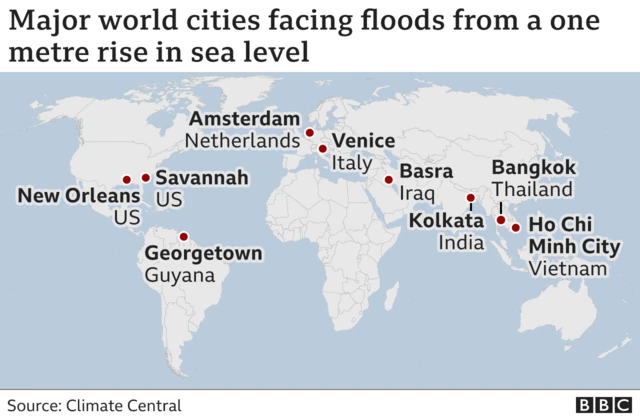Friday's round-uppublished at 21:39 GMT 12 November 2021
It's been another long day for negotiators. Here's a round-up of what happened:
- It was meant to be the final day of negotiations. But as expected, the 18:00 GMT deadline was missed, and negotiators continued to work into the night debating the intricate details. Another plenary meeting won't be held tonight, which means we won't see the next draft text until tomorrow morning around 08:00
- A new draft agreement was published Friday morning, leading to criticism from many countries and activist groups. It weakens some of the language from an earlier draft on the phasing out of coal and fossil fuels, but strengthens other sections - including calls for nations to set climate targets
- A long stocktaking session was held, where nations shared their thoughts on how the talks are going. There was an overarching feeling from most countries that more needs to be done
- There were particularly strong messages from island nations, such as Tuvalu, whose representative said: “It is a matter of life and survival for many of us"
- Environmental campaign group Greenpeace released balloons inside the summit hall reminding delegates that the Earth is "not for sale". They accused energy lobbyists of trying to "greenwash" the conference
- Some delegates walked out of the talks to join climate activists outside the venue, chanting "power to the people"
- Scottish police are investigating after tyres on SUVs were slashed in Glasgow by a group trying to draw attention to the high level of emissions from these vehicles
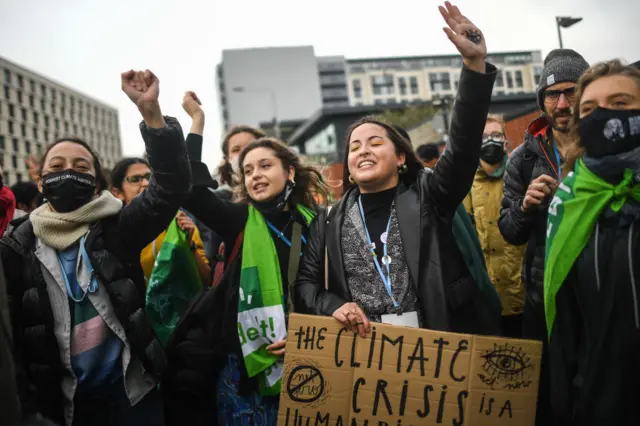 Image source, Getty Images
Image source, Getty Images